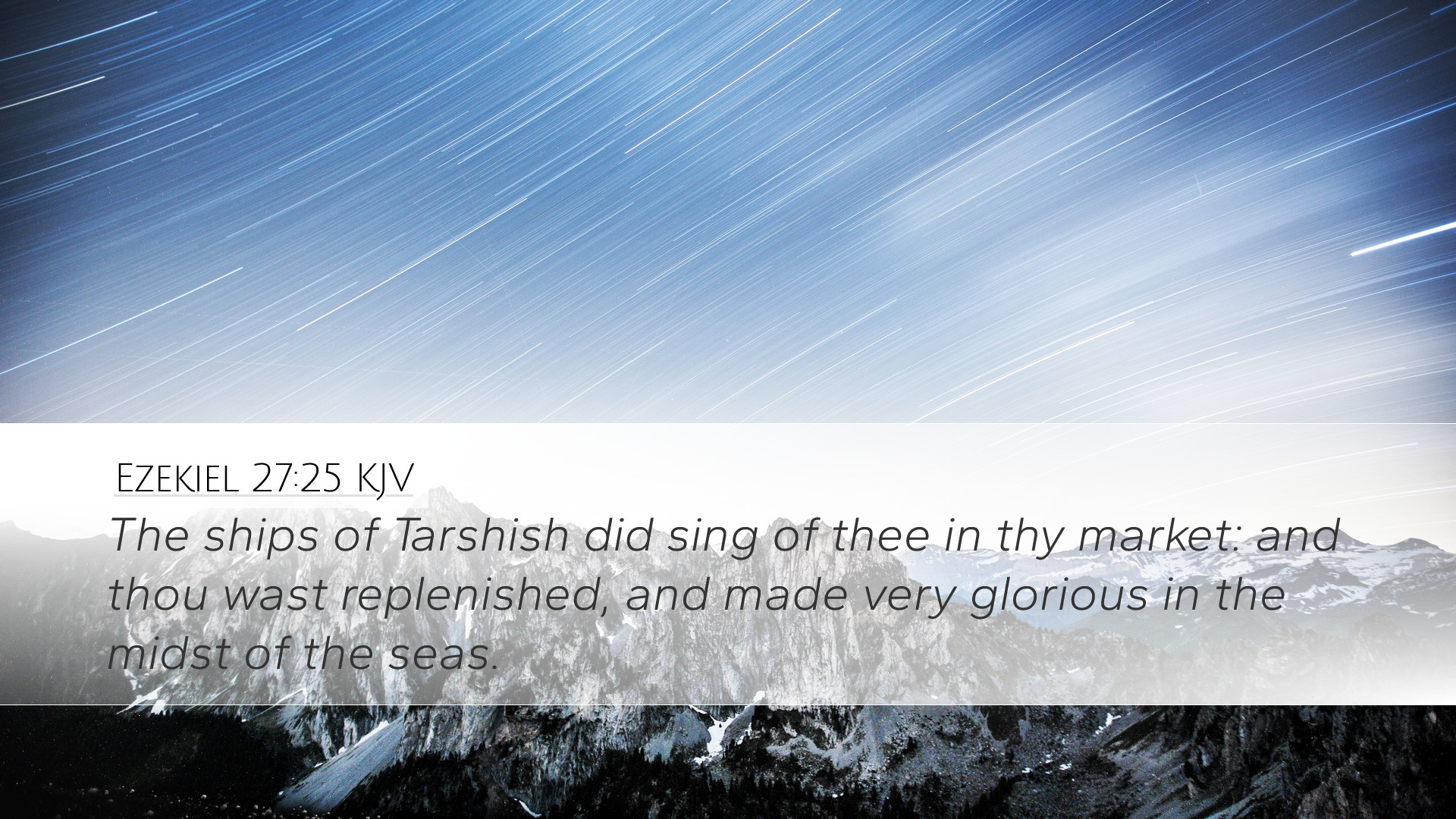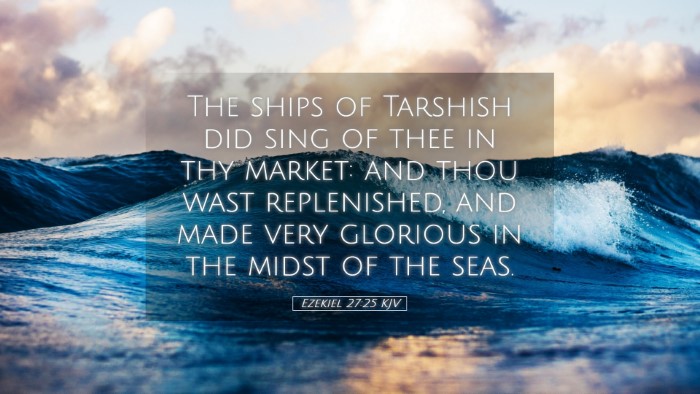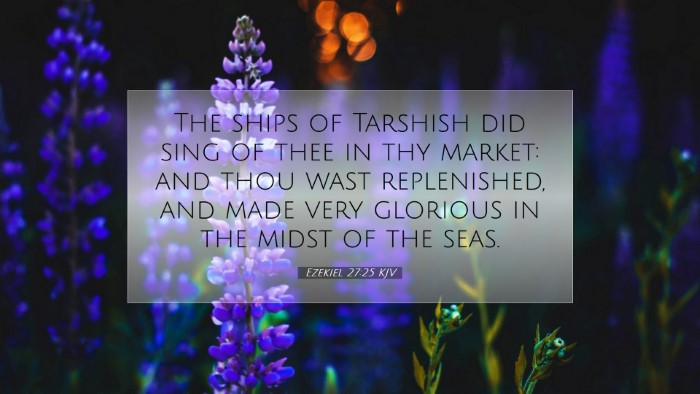Ezekiel 27:25 - Commentary and Insights
Bible Verse: Ezekiel 27:25 - "The ships of Tarshish were the merchants' ships: and thou wast replenished, and made very glorious in the midst of the seas."
Contextual Background
The prophetic book of Ezekiel was written during a challenging period for the Israelites, as they were in exile in Babylon. Ezekiel speaks to both the hope of restoration and the judgment against nations, particularly focusing on Tyre, a symbol of commercial prosperity and pride. This particular verse, Ezekiel 27:25, is part of a lamentation against Tyre, illustrating the city's downfall from its former glory and the futility of its commercial endeavors apart from God.
Summary of Key Insights
- Tyre as a Commerce Power: Tyre was renowned for its maritime trade and its influence over the Mediterranean region. It was likened to the “ships of Tarshish,” which are thought to represent distant trade routes and luxurious commodities (Barnes).
- Symbol of Glory: The phrase "made very glorious" encapsulates Tyre's pride in its commercial success and lavish lifestyle, emphasizing the fleeting nature of such glory when it is not aligned with divine purpose (Clarke).
- Moral and Theological Lessons: The commentary suggests that the downfall of Tyre serves as a warning against pride and self-reliance. Wealth and glory accumulated without reverence for God lead to eventual judgment (Henry).
- Imagery and Meaning: The mention of the “midst of the seas” captures the idea of Tyre as an influential player in global trade, yet also emphasizes its vulnerability to divine judgment (Barnes).
Verse Analysis
1. The Ships of Tarshish: These ships symbolize wealth and abundance. They were emblematic of distant voyages and successful merchants, representing the pinnacle of commercial achievement (Henry). Tarshish is often associated with the far-off lands, denoting a global trade network that Tyre exploited to enhance its economic stature.
2. Merchants’ Ships: The phrase indicates not just vessels of transportation but elaborate entities that signify the prosperity attached to Tyre's trade (Clarke). They represent the promise and potential of market ventures but eventually serve as symbols of the city's pride.
3. Replenished and Made Very Glorious: Tyre was replenished with goods and wealth, illustrating the bountiful returns from its trade. However, this concept also reinforces the idea that such glory is transient. The reliance on material wealth without spiritual foundation can lead to destruction (Barnes).
4. In the Midst of the Seas: This phrase places Tyre at the center of trade routes, highlighting its significance in Mediterranean commerce (Henry). It can also be interpreted as an allusion to the tumultuous environment of competitive trade, where pride precedes a fall.
Theological Implications
Ezekiel 27:25 serves as a powerful reminder that any nation or individual can experience prideful success while ultimately being subject to God’s sovereignty. The downfall of Tyre, with its ships and glorious trade, illustrates the finite nature of human endeavors divorced from divine guidance and favor.
Pride and Its Consequences
- Temptation of Wealth: Wealth can tempt nations and individuals to pride and self-sufficiency, distancing them from God (Clarke).
- Divine Judgment: The eventual calamity faced by Tyre reflects God’s opposition to human arrogance and the ultimate futility of relying solely on material success (Barnes).
- Hope in Restoration: Despite the judgment on Tyre, Ezekiel’s prophecies carry the theme of hope and restoration for Israel, encouraging believers to trust in God’s plan beyond earthly prosperity (Henry).
Application for Today’s Believers
In reflecting on Ezekiel 27:25, modern believers are encouraged to assess their own reliance on material wealth and the pride that comes from success. The commentary urges a redirection of focus from temporal gains to eternal significance, reminding pastors, scholars, and students to evaluate what true glory means in their lives.
Practical Considerations
- Examine the Heart: Believers should engage in self-reflection to ensure their pursuits align with God’s purposes.
- Community Engagement: The Church must focus on service and humility, counteracting societal tendencies towards pride displayed by wealth and status.
- Dependence on God: A commitment to be anchored in God’s truth will provide stability, especially when faced with challenges, contrasting the plight of Tyre.
Conclusion
Ezekiel 27:25 serves as both a historical account of Tyre's fall and a timeless message about pride and the pursuit of glory. By studying this verse through the insights provided by respected commentators, pastors, students, and scholars can glean profound truths that challenge them to seek a life of humility, grounded in faith and devotion to God.


